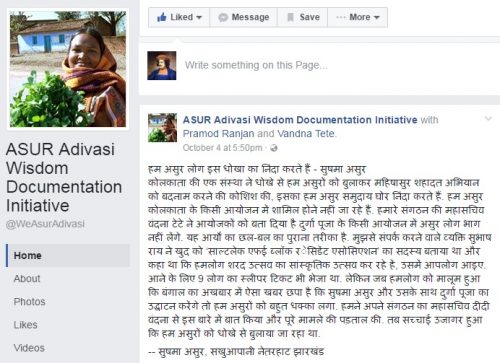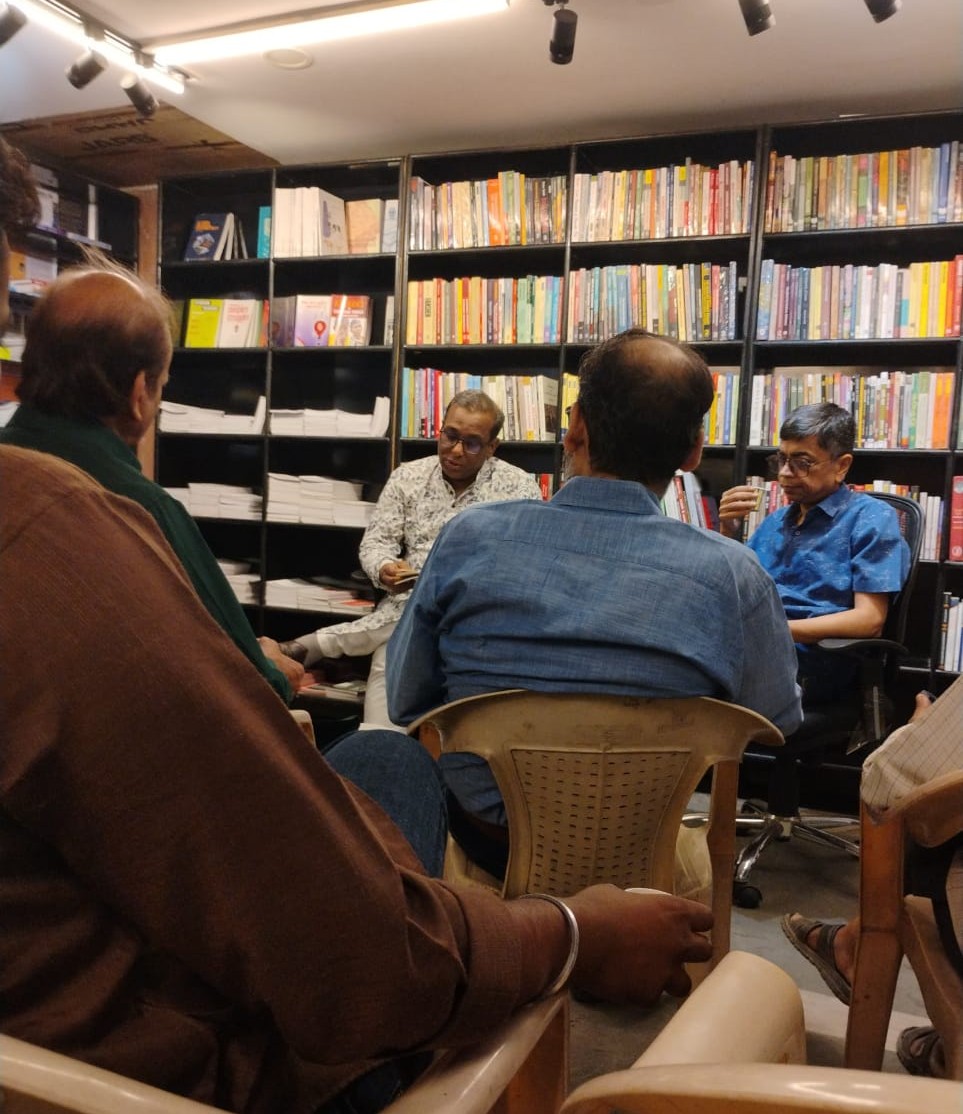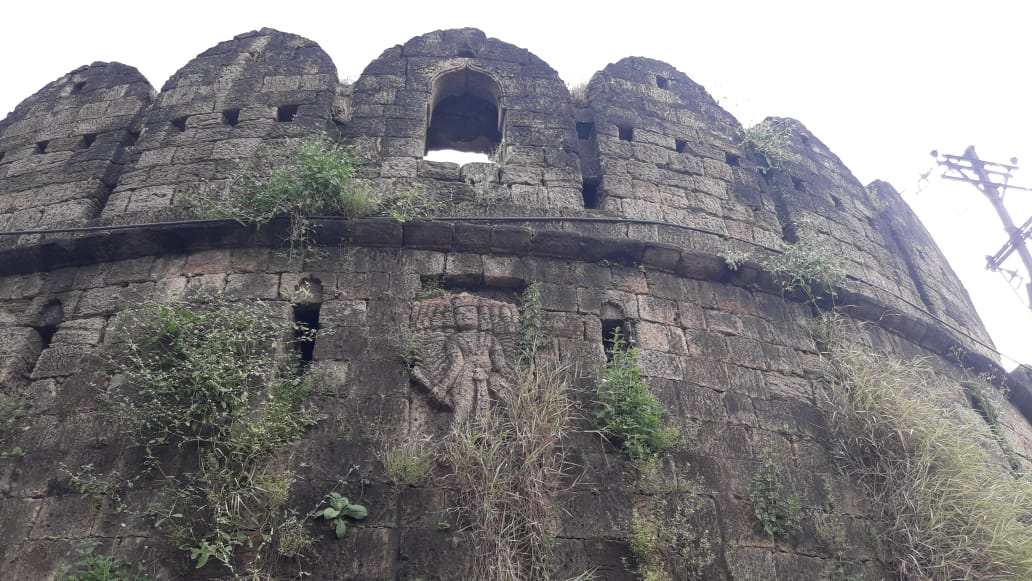Some 700 venues in West Bengal will hold Mahishasur Day programmes this year. There were just a few groups of people holding these events in and around Kolkata in the early 1990s, when this tradition began. The response of the Durga Puja organizers in Kolkata to this increase in participation in Mahishasur Day activities throughout West Bengal has been akin to Indra’s move to dethrone Mahishasur in the myth from the Markendaya Purana – the myth on which the Durga Puja itself is based.

Representatives of a certain Phoolbagan Sarbojonin Durga Puja Committee contacted Sushma Asur, a poetess from the Asur tribal community in Jharkhand. Asurs consider themselves descendants of Mahishasur. Vandana Tete and Sushma Asur, who are both associated with Jharkhandi Bhasha Sahitya Sanskriti Akhra, wrote in a press release that the representatives had introduced themselves as members of the Salt Lake F-E Block Residents’ Association and invited Sushma to attend a cultural programme on “Sharad Utsav”. Then on 3 October, the Times of India published a report according to which Sushma would “inaugurate the puja festivities” to be held on 7 October. Navbharat Times, the Hindi newspaper of the Times Group that publishes Times of India, also could not ignore this unexpected development and announced that an Asur would be joining the worship of a woman who killed their king and ancestor. It was only when Vandana and Sushma read the newspaper reports that they found out what the real intention of the organizers was. Journalist and author Ashwini Kumar Pankaj condemned “this act of betrayal, very much in line with how Mahishasur was tricked and killed”.
Sushma Asur has been quoted as saying that she initially accepted the invitation to try and break the stereotype of Asurs being “rakhsaks” so that others finally begin to accept their children in schools and colleges as human beings. Anil Asur, a social activist from Bishunpur block, Gumla district, Jharkhand, has always opposed all kinds of idol worship, including Durga Puja. He warned Asurs, especially the educated among them, about these traps laid by the Brahmanvadis, “who have always been breaking up communities”. He said he would never take part in such a function.
Vandana and Sushma wrote in the press release that “the Asurs have been deeply hurt” by this “betrayal”.
How the Asurs remember Mahishasur
The Durga Puja pandals in Kolkata and other cities of North India will soon have the idols of a fair-skinned Durga showing her in the act of overpowering and killing a dark-skinned Mahishasur. But in parts of Jharkhand that have yet to be dug up by bauxite miners, on or around Deepawali, the Asur people will quietly pay tribute to Mahishasur. In the video given below, Chamra Asur, alias Mahesh, tells Forward Press’ consultant editor Pramod Ranjan how they remember their benevolent ancestor.
https://www.youtube.com/watch?v=9-2enueF1qE
For more information on Mahishasur, see Mahishasur: Ek Jananayak. Contact The Marginalised (Phone: 9968527911; e-mail: themarginalisedpublication@gmail.com).
Click here to purchase a copy on Amazon.
The English edition of the book has been titled Mahishasur: A People’s Hero. Copies are available here.
For the e-book version, click here





